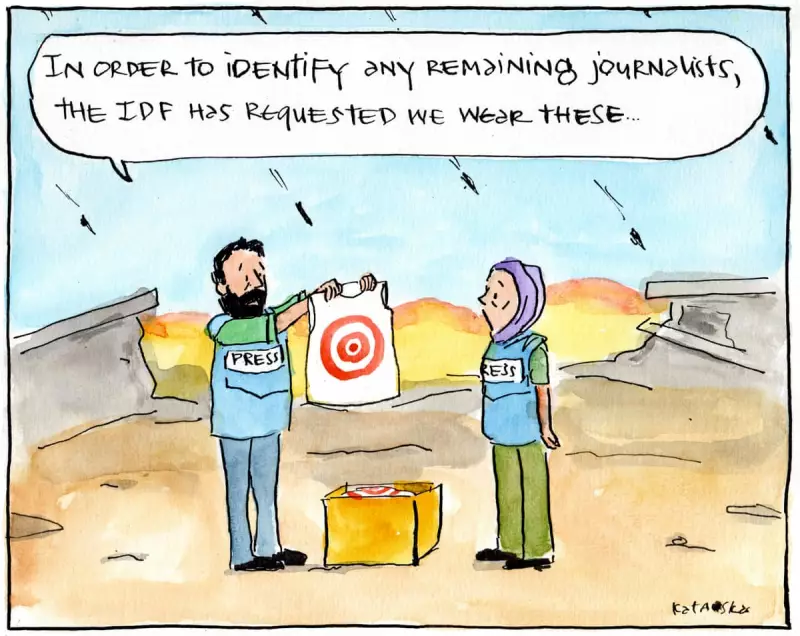
The very foundations of war reporting are being shattered in Gaza, where journalists are being killed at a rate described by press freedom organisations as unprecedented and catastrophic. A recent Reuters Institute investigation confirms what many on the ground have long feared: that the traditional protections afforded to the press have all but vanished.
This isn't merely about the tragic loss of life; it's a crisis that strikes at the heart of our right to know what is happening in one of the world's most devastating conflicts. The report lays bare a harrowing reality: the international mechanisms designed to keep journalists safe have spectacularly failed.
A Pattern of Failure and Inaction
The findings are damning. Despite widespread global condemnation and clear evidence of targeted strikes, there has been a stunning lack of meaningful international intervention. The Reuters analysis points to a systemic breakdown, where calls for protection are met with silence or insufficient action.
This failure has created a permissive environment where journalists, along with their families, are paying the ultimate price. The report suggests that the scale of the casualties indicates that current laws of war and press protection protocols are being ignored with impunity.
The Chilling Effect on Truth
Beyond the immediate horror of the death toll lies a deeper, more insidious threat: the silencing of Gaza itself. When reporters cannot work without fear of being killed, entire narratives are extinguished. The world is left with gaps in understanding, reliant on fragmented information, and unable to grasp the full human cost of the conflict.
This erosion of on-the-ground reporting creates a vacuum—one that can be easily filled with misinformation and propaganda from all sides. The truth becomes the first casualty, and the public's ability to hold power to account diminishes.
A Call for a New Standard of Protection
The Reuters investigation concludes with an urgent plea. It calls for a fundamental re-evaluation of how journalists are protected in conflict zones, arguing that the old rules no longer apply. There is a pressing need for new, robust, and enforceable international agreements specifically designed for modern warfare.
Without this, the future of conflict reporting looks bleak. The message being sent is terrifyingly clear: in Gaza and potentially in future wars, journalists are not seen as neutral observers but as targets. The international community's response—or lack thereof—will set a precedent for years to come, determining whether a free press can survive the world's most dangerous assignments.





